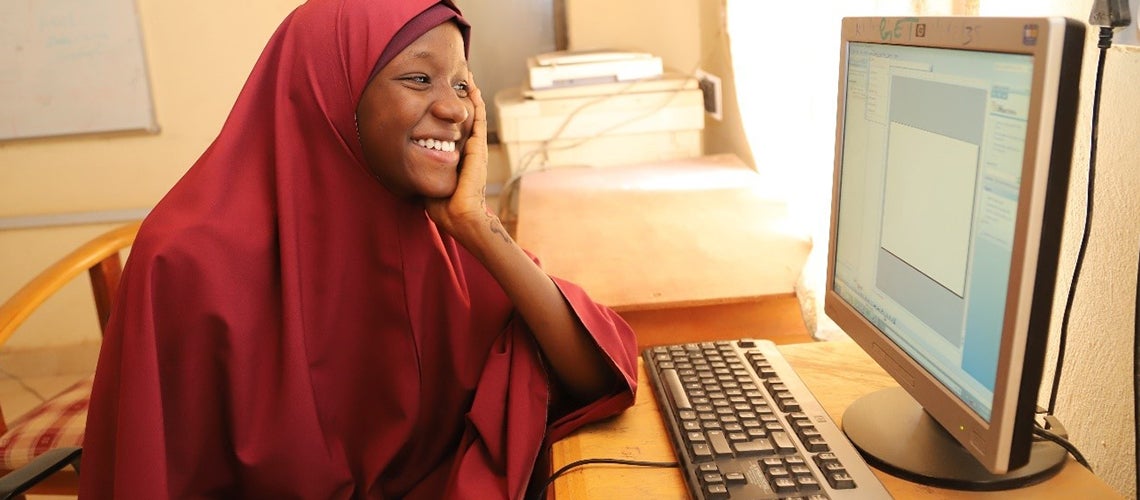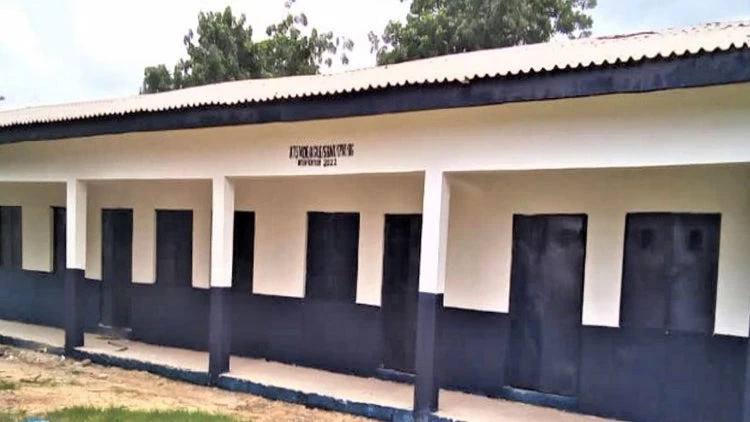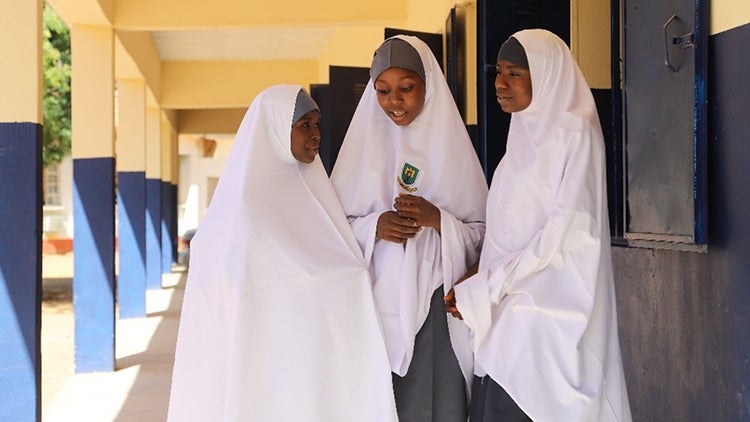 Musa, Government College, Katsina, Nigeria
Musa, Government College, Katsina, Nigeria
Adolescent girls in Nigeria face disproportionate obstacles in their lives and, in many cases, see their access to education interrupted. Attacks on schools, mass abductions of students, and violence have intensified over the last few years, making it less likely for girls to go to school. It is estimated that at least one million children could miss education this year.
COVID-19 didn’t make things any easier. School closures have kept up to 45 million Nigerian students out-of-school at the peak of the pandemic. During lockdowns, girls were less likely to benefit from distance learning due to the lack of access to technology and more caregiving responsibilities. Available research points to the unintended consequences of lockdowns, such as a spike in gender-based violence, a rise in teenage pregnancy, and a drop in girls’ school attendance. The dropout rate just after schools reopening increased with children’s age and this was more pronounced for girls than boys - suggesting that schoolgirls in secondary school were more affected. Also, the COVID-19 lockdown measures might have exacerbated practices such as child marriage.
In a nutshell, while girls were at increased risk of dropping out of school, and experience violence, pregnancy, and child marriage, the fallout from the pandemic and attacks on schools will likely deepen the significant gender divide in access to and completion of education.
Girls’ education brings multiple benefits to human capital development
Available evidence shows women’s lower education attainment is highly corelated with increased fertility rates. Improving education for women can help Nigeria realize the demographic dividend potential and bring economic prosperity. The consequences for Nigeria’s development are enormous as each additional year of education can increase future income by at least 10% and decrease the chances of maternal death by 20% and fertility rates by 0.26 births.
The Nigerian government has committed to girls’ education by enacting policies such as the Universal Basic Education Act and by recently launching the Nigeria Human Capital Vision, which aims to double female secondary school enrolment and completion rates. Several states have recently shown similar commitment.
Doing more is required to ensure a better environment where girls can easily access and complete secondary school education. In response, The Adolescent Girls Initiative for Learning and Empowerment (AGILE) was recently conceived by the Government of Nigeria with support from the World Bank. The initiative is one of the first far-reaching and comprehensive multi-sectoral interventions to empower girls to access and complete secondary school education.
Through the AGILE program, the Government aims to address the multiple constraints that girls face through a variety of multisectoral interventions. They include the construction and rehabilitation of schools, improved safety conditions in and around schools, communication campaigns to shift social norms, safe spaces to deliver life skills, health and nutrition information (including reproductive and menstrual hygiene), delivery of digital skills training, cash transfers to incentivize households to send girls to school, and other measures to strengthen education systems.

AGILE promotes change in a bottom-up approach, and builds local capacities - with governments, civil society and community organizations, the private sector, and traditional leaders. Innovative solutions are deployed to solve constraints. For example, the initiative is providing safe and secure schools, which are necessary for girls’ attendance, by going beyond fencing school perimeters to comprehensive security measures such as specific policies and actions, and setting positive behavior expectations and a code of conduct for teachers. The rollout of life skills and digital literacy training will ensure that girls gain valuable skills for the job market and also can continue their learning in case of disruptions created by violence.

More than 7 million girls and boys will benefit from the interventions supported by the AGILE program. The installed capacity, such as new and renovated classrooms, cash transfers, and social norms campaigns, will help many others in the future.
Continued and sustained investments towards improving access and quality of education will ensure that girls across Nigeria do not have to go through traumatic experiences, but are able to complete secondary education , grow up as healthy and productive adults, and fulfill their human potential. Not only will it change the lives of millions of girls, but it will also improve the social and economic development of the most populous country in Africa.



Join the Conversation